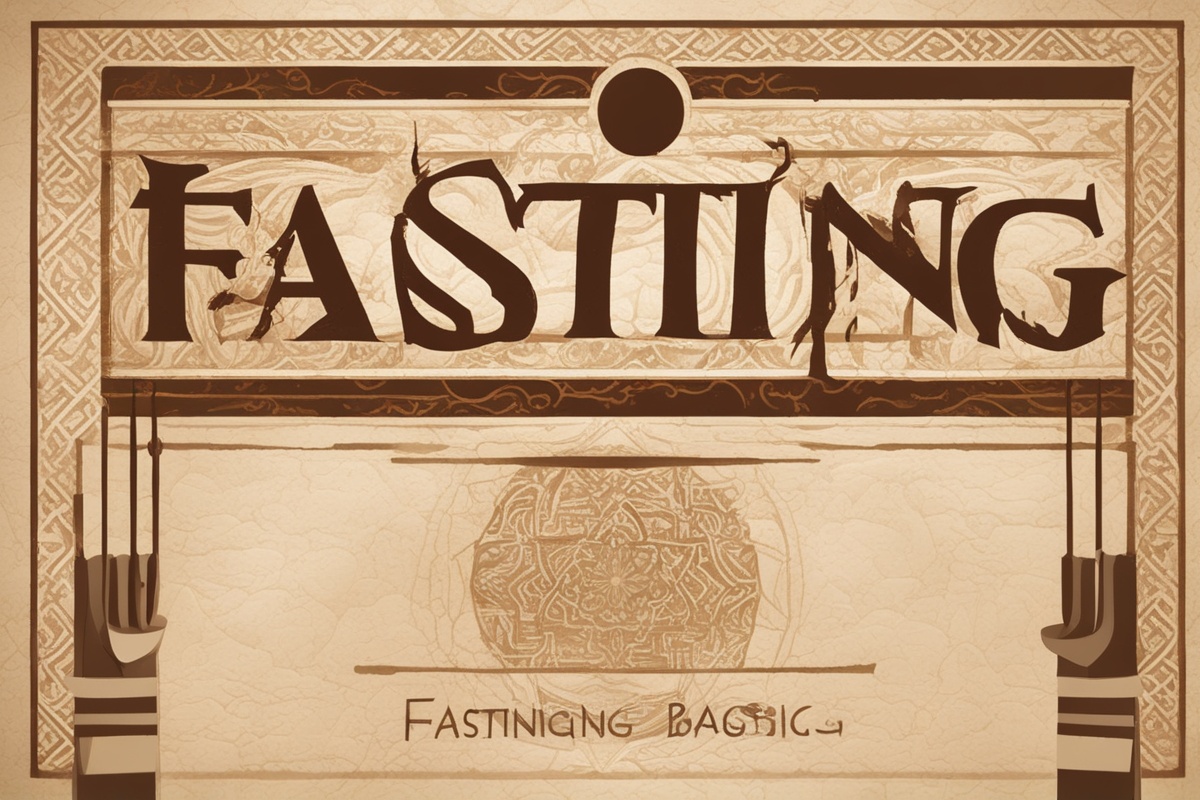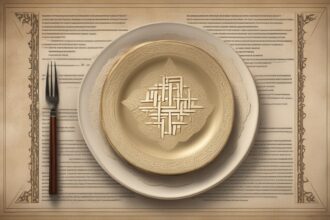Fasting, or the deliberate act of abstaining from food and sometimes drink, is a practice that stretches back to the dawn of human civilization. Often tied to spiritual, cultural, and health-related motivations, the ancient roots of dietary abstinence reveal a fascinating tapestry of human history. This post explores how fasting emerged across different cultures and eras, shedding light on its enduring significance in shaping societal norms and personal discipline.
The Origins of Fasting in Prehistoric Times
The concept of dietary abstinence likely predates recorded history, emerging from necessity rather than choice. In prehistoric times, early humans faced periods of food scarcity due to seasonal changes, failed hunts, or natural disasters. These involuntary fasts may have inadvertently taught our ancestors about the physiological and psychological effects of abstaining from food. While direct evidence is scarce, anthropologists suggest that early humans might have ritualized these periods of scarcity, associating them with spiritual purification or endurance. The ancient roots of dietary abstinence, therefore, may lie in survival mechanisms that later evolved into intentional practices.
Fasting in Ancient Religious Traditions
One of the most prominent contexts for fasting in antiquity is religion. Across various ancient cultures, dietary abstinence was often seen as a means of spiritual cleansing and connection to the divine. In ancient Egypt, for example, priests fasted before performing sacred rituals to purify themselves and demonstrate devotion to the gods. Similarly, in ancient India, fasting was integral to Hindu and Jain practices, often tied to concepts of self-discipline and liberation from material desires. The Vedas, some of the oldest religious texts, mention fasting as a way to attain spiritual clarity. These early practices highlight how the ancient roots of dietary abstinence were deeply intertwined with the quest for transcendence.
Dietary Abstinence in Greco-Roman Culture
In the Greco-Roman world, fasting took on both spiritual and practical dimensions. The ancient Greeks, for instance, practiced fasting as part of mystery cults like the Eleusinian Mysteries, where participants abstained from certain foods to prepare for sacred initiations. Philosophers like Pythagoras advocated for dietary restraint as a means of achieving mental clarity and moral purity. In Rome, fasting was sometimes linked to mourning or penance, though it was less widespread as a religious practice compared to other cultures. The ancient roots of dietary abstinence in this context show a blend of health-conscious and spiritual motivations, reflecting a nuanced understanding of the mind-body connection.
For more on how ancient philosophies influenced modern wellness practices, check out our post on The History of Wellness Practices.
Fasting in Early Abrahamic Traditions
The ancient roots of dietary abstinence are particularly evident in the Abrahamic faiths—Judaism, Christianity, and Islam—where fasting became a cornerstone of religious observance. In Judaism, the practice of fasting dates back to biblical times, with Yom Kippur (the Day of Atonement) requiring a 25-hour fast as an act of repentance and reflection. Early Christians adopted fasting as a form of penance and preparation for major events like Easter, often abstaining for extended periods during Lent. In Islam, the tradition of fasting during Ramadan, established in the 7th century CE, emphasizes self-control and empathy for the less fortunate. These traditions underscore how fasting transcended mere dietary restriction to become a profound act of faith.
Learn more about the evolution of religious practices in our article on Spiritual Traditions Over Time.
Health and Fasting in Ancient Medical Practices
Beyond spirituality, the ancient roots of dietary abstinence also extend to health and medicine. In ancient Greece, Hippocrates, often called the “Father of Medicine,” advocated fasting as a remedy for various ailments, believing it allowed the body to heal itself by redirecting energy from digestion to recovery. Similarly, in ancient China, Taoist practitioners used fasting as part of longevity practices, aiming to balance the body’s vital energy, or “qi.” These early medical perspectives reveal that fasting was not only a cultural or religious act but also a therapeutic tool, a concept that resonates with modern intermittent fasting trends.
For a deeper dive into historical health practices, see our piece on Ancient Medicine and Modern Health.
The Cultural Significance of Fasting Across Civilizations
The ancient roots of dietary abstinence also reflect broader cultural values. In many indigenous cultures, fasting was part of rites of passage or communal rituals, symbolizing endurance and unity. For instance, among Native American tribes, vision quests often involved fasting to induce spiritual revelations. In ancient Mesopotamia, fasting was sometimes practiced during times of crisis, such as drought or war, as a plea for divine intervention. These diverse applications of fasting illustrate its role as a universal human experience, cutting across geographical and temporal boundaries to address both individual and collective needs.
Disclaimer: The information provided in this article is for educational and informational purposes only. It is not intended as medical advice or a substitute for professional guidance. Fasting can have varying effects on individuals, and it is recommended to consult with a healthcare provider before beginning any fasting regimen, especially if you have underlying health conditions or are on medication.
References
- Britannica: Fasting – Historical and Cultural Perspectives
- NCBI: Historical Context of Fasting and Its Health Implications
- History.com: The History of Fasting in Religious Traditions
- JSTOR: Fasting in Ancient Greece and Rome
- National Geographic: The Ancient Practice of Fasting
This content is for informational purposes only and not a substitute for professional advice.






